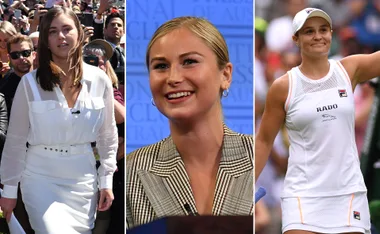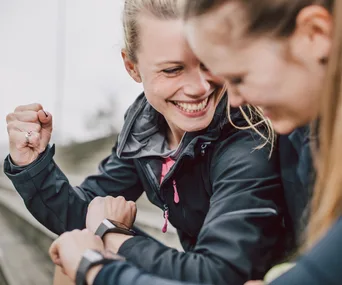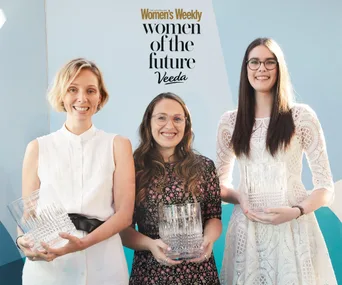When Anna Robertson arrived in the sprawling chaos of Ghana as an optimistic young AusAid ambassador in 2012, she noticed two things that would inspire her create a revolutionary organisation.
The first was that the West African economy was powered by an informal, mostly female network of skilled — but unregulated — merchants selling goods on street corners and in remote communities.
The second was that the markets were awash with vivid, eye-catching printed textiles of pinks, oranges, blues and greens. During her time working for NGOs over the following years, those first impressions stayed with Anna and the idea for a venture that harnessed and enhanced the skills of Ghanaian women was born.
“You can throw a tonne of money at a problem but a lot of the time the people who are supposed to benefit from that program don’t. I saw a little bit of potential in taking the business route and trying to make a difference within the existing structures that we operate in,” Anna says.
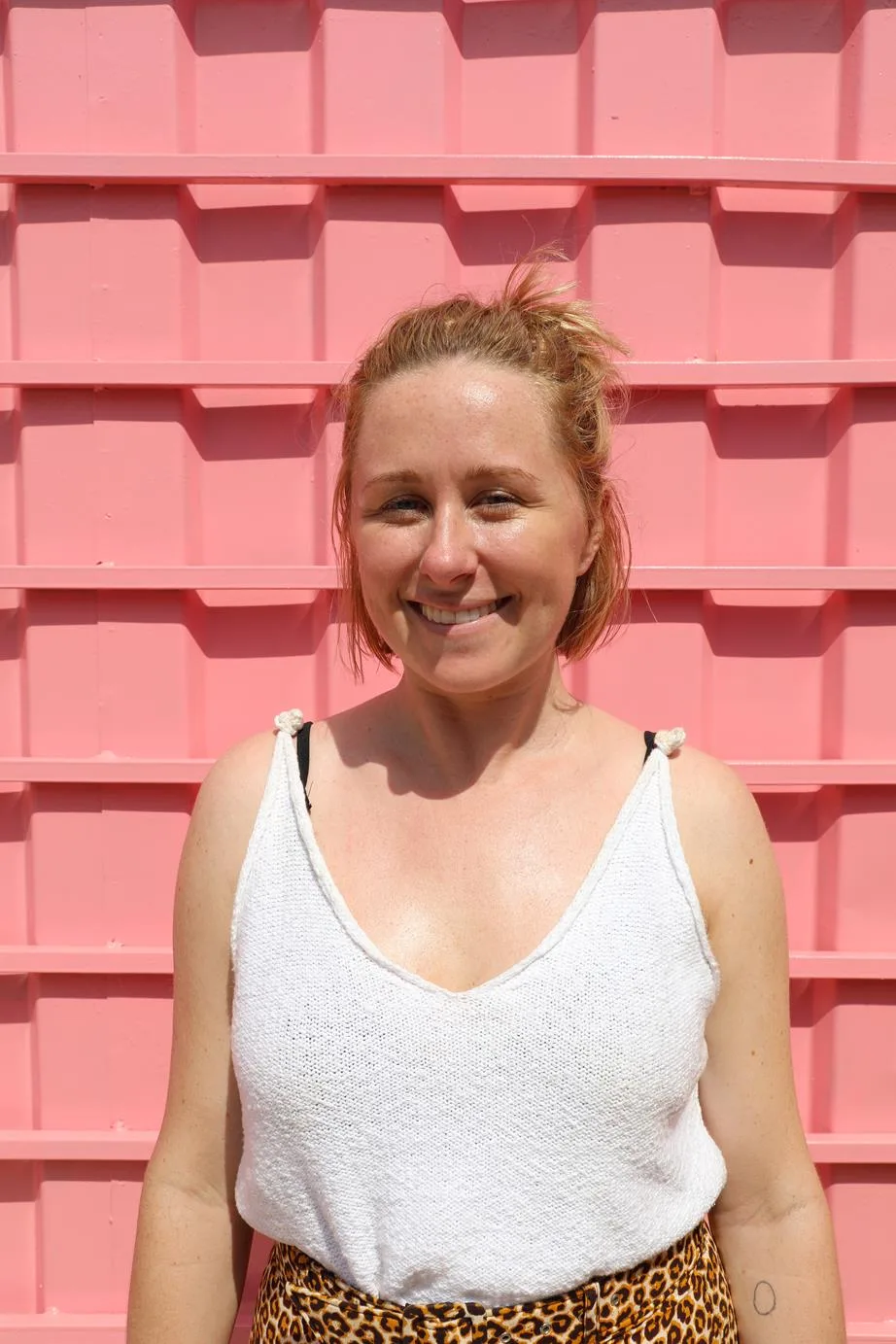
Anna Robertson believes that a larger impact can be made by starting small-scale.
(Supplied)Using her own savings, Anna founded a socially responsible fashion label named Yevu that used locally made fabrics to create dresses, jumpsuits and separates for the global market.
“The aim was to economically empower women in Ghana by facilitating dignified, sustainable and financially rewarding employment for these often vulnerable women,” Anna says.
Amid Ghana’s informal economy, she found a ready workforce of skilled and creative women eager to embrace Yevu’s mission.
Anna opened a pop-up shop in inner-city Sydney selling a small line of unisex clothes produced out of Ghana.
Then she leveraged the shop’s success to take out a loan, which she invested in training and developing sewers, cutters and other staff in Ghana.
“At first it was a lot of me and our partner at the time on the floor with thousands of yards of fabric around us trying to figure out how to put systems in place,” Anna says.
But in nine years Yevu has grown into a thriving workplace and a coveted label that frequently sells out of its popular prints. It has also changed the lives of the workers it employs — one-third of whom are single mothers.
Yevu production manager Felicia joined Yevu when it started in 2012 and says the enterprise has become her life.
“Now I’m able to get some money and further my education and invest. I’ve also been helping a lot of people around me,” the mother of four says. “Yevu is making some people like me be somebody.”
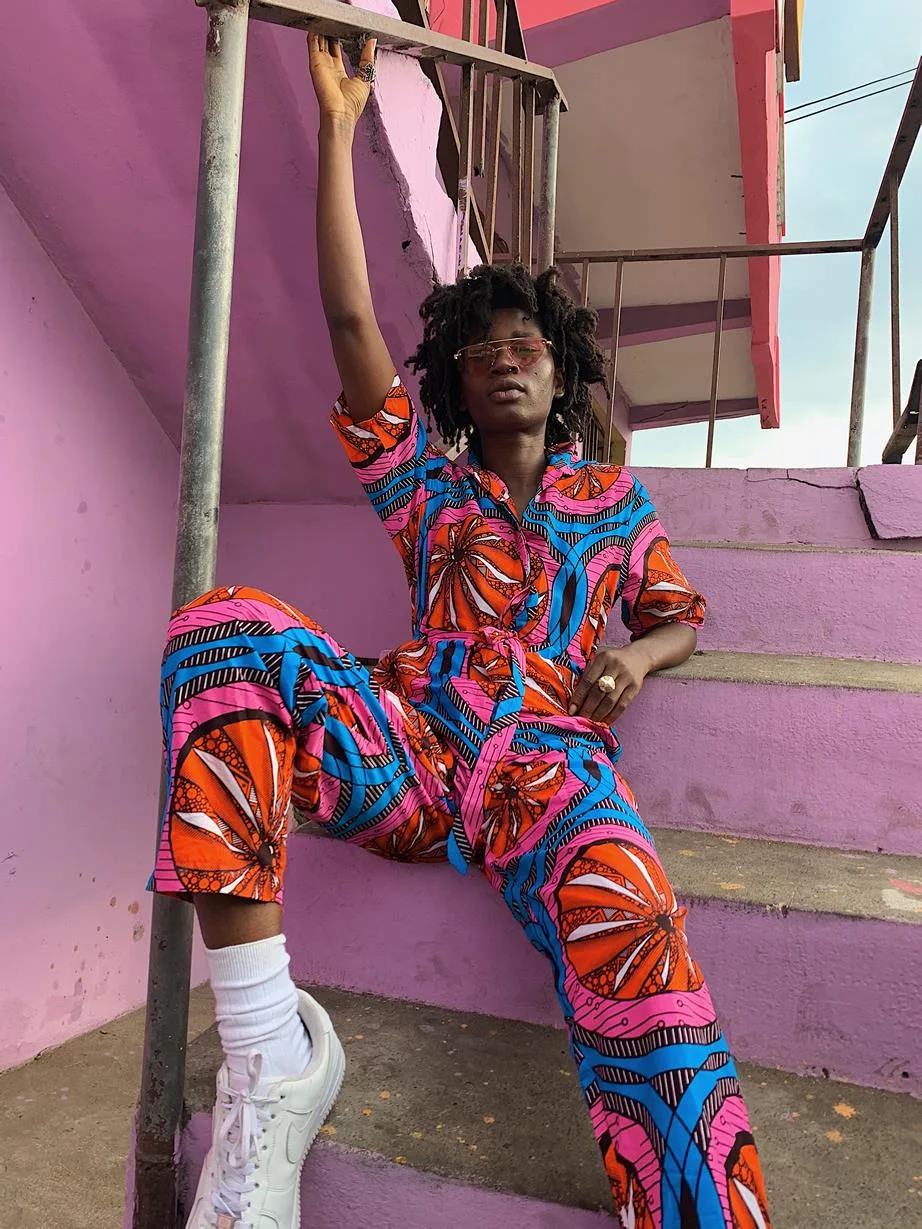
Each Yevu garment is socurced and produced in Ghana, and kept single mothers there employed throughout the COVID-19 pandemic.
(Supplied)The clothes are well-made and generate the income needed to provide Yevu’s workers with sallaries that are above the living wage in Ghana. Mary, who joined Yevu as a seamstress in 2019, says the skills she has gained have transformed her life.
“The money that I gain in Yevu helps me a lot. My family also benefits out of the work I am doing. Not only my family but my friends too,” she says.
Anna says many people associate Africa with charity but it is home to a massive skilled workforce.
“People want to work and they want to rise out of poverty and I think one of the ways to do that is through business. It’s not the silver bullet but I think the Africa charity concept is something born out of ignorance,” she says.
The business model is certainly working for Yevu, which employed around 25 staff and had seen revenue double in the 18 months leading up to her 2020 WOTF win.
“No aid money has been used,” Anna says with pride. “The products stand in the marketplace on their merits.”
As the 2020 award winner, Anna received more than $70,000 in cash and prizes to further her cause.
For more information, visit yevuclothing.com
The Australian Women’s Weekly Women of the Future Awards champion young women aged 18 to 34 who want to make their mark on the world.
If you are such a woman, or you know such a woman, the opportunities that these Awards provide could change your life – and the lives of those your work touches.
Entries are open now – click here for all the details.

